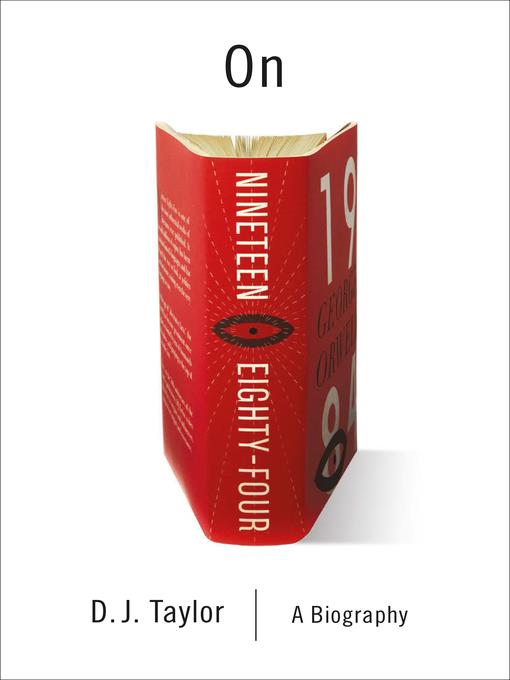
On Nineteen Eighty-Four
A Biography
- اطلاعات
- نقد و بررسی
- دیدگاه کاربران
نقد و بررسی

July 29, 2019
Taylor (Orwell: A Life) delivers a second George Orwell “biography,” in this case tracing the “life” of the author’s most famous novel, 1984. In discussing the book’s genesis, Taylor suggests that Orwell’s public school experiences, as related in his essay “Such, Such Were the Joys,” gave him an early taste of repressive regimes. Orwell himself pointed to the 1943 Tehran Conference—in which Churchill, Stalin, and Roosevelt met to “carve up” the post-WWII world—as providing initial inspiration for his dystopian future. Most compelling is Taylor’s account of Orwell’s unusual (for him) struggle to complete the novel, while wracked by tuberculosis and holed up in a remote village in the Inner Hebrides. Taylor vividly evokes the image of a tubercular Orwell hunched in bed, laboriously typing out a fair copy of the manuscript for his publisher, while the Atlantic rages outside his window. Less thorough on the book’s post-publication life, Taylor does convey the trouble to which Orwell went, mostly fruitlessly, to prevent the book’s political misappropriation by both left and right. Unfortunately, 1984’s influence far exceeds the capacity this slender volume can capture, but Taylor has nevertheless crafted a gripping portrait of the creation of an essential novel.

September 1, 2019
The life and times of a "glittering futurist extravaganza." Biographer and novelist Taylor (Rock and Roll Is Life, 2018, etc.) describes George Orwell's Nineteen Eighty-Four as "an exposé of the totalitarian mind," perhaps the "first Cold War novel," and "one of the key texts necessary for an understanding of the twenty-first century." High praise for a book Orwell (1903-1950) laconically described to his publisher in 1947 as a "fantasy, but in the form of a naturalistic novel." Taylor's 2003 biography of Orwell won the Whitbread Book Award for Biography. Here, he zeroes in on Orwell's final book. He delves deeply and brightly into the making of the novel, its inspiration, how Orwell wrote it, and how it was received critically, socially, and politically then and afterward. It took Orwell five years to write. He was quite ill and in hibernation on the rugged Isle of Jura, off Scotland's coast, and died less than a year after it was published in 1949. "By writing about the terrors that obsessed him," writes Taylor, "he had got them out of his system." The novel is a "devastating analysis of the corruption of language," a "dystopian horror world...and more." Taylor also deftly shows how "many of its incidental fragments turn out to have been robbed wholesale from the life that ran along beside it." He demonstrates how Orwell generated the narrative while also continuing to contribute to magazines, exploring the political and social landscape. The 1943 Allied leaders' Tehran Conference gave "his consciousness a decisive kick, and he was able to clarify his vision for Nineteen Eighty-Four after he read Yevgeny Zamyatin's We. Before Orwell died, he believed "something resembling [the fascist society depicted in Nineteen Eighty-Four] could arrive." Taylor provides a good introduction to the work, but for more detail on the novel's impact on popular culture, look to Dorian Lynskey's The Ministry of Truth. A lively, engaging, concise biography of a novel.
COPYRIGHT(2019) Kirkus Reviews, ALL RIGHTS RESERVED.




دیدگاه کاربران